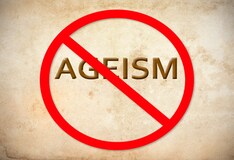This is Dr Jeffrey A. Lieberman of Columbia University, speaking to you today for Medscape. My comments today could be titled "Psychiatry Suffers Another Indignity" or "What Does the New York Times Have Against Psychiatry?"
On January 17, 2015, in the review section of the New York Times, which has the op-ed columns, an article was published, titled "Redefining Mental Illness."[1] The article was written by T.M. Luhrmann, who is on the faculty at Stanford University. Dr Luhrmann, by her background, is a very well-educated anthropologist who has been a prolific contributor to the public media and literature for the lay public, as well as within her own academic field, and has written several books.
The article about mental illness was an incredibly unscholarly, misinformed, confused—at worst, unhelpful, and at best, destructive—commentary that will add to the confusion about the diagnosis of mental illness, enhance the stigma, and may lead some patients to doubt the veracity of the diagnoses that they have been given and the treatments that they are receiving. Specifically, Dr Luhrmann was prompted to write this by a report[2] that came from the British Psychological Society, which is a professional organization in the United Kingdom.
This report, titled Understanding Psychosis and Schizophrenia,[2] suggested that hearing voices and having feelings of paranoia were common experiences; that they commonly occur in the course of everyday life, particularly in the context of trauma, abuse, or deprivation, and that they shouldn't be considered symptoms of mental illness and attached to diagnoses because that is only one way of viewing them. Viewing diagnoses as normative mental phenomena has relative advantages and disadvantages. This strikes me as preposterous. It is, at best, phenomenologic relativism, and at worst, simply conflating symptoms with a disorder or a disease.
It's common knowledge to every student of medicine and most knowledgeable laypeople that just because you have a symptom doesn't mean that you have an illness. You can have fever without having an infection. You can have shortness of breath without having asthma or heart disease. You can have chest pain without having a heart attack. You can have a headache without having a tumor, so no one has ever conflated a symptom with a diagnosis. It's a constellation of symptoms occurring in a specific pattern and conforming to an observed and potentially validated condition that defines a diagnosis.
There are rigorous principles that govern the process of establishing a diagnosis or refining the criteria by which it is identified. The article goes on to say that there is no strict dividing line between mental illness and normality. Although everyone knows that there is a spectrum of severity of symptoms in the context of an illness, there is no question that, at some point, they cross a threshold that defines symptoms as an illness. Viewing it this way is, in a way, challenging the veracity of diagnoses and giving people who have symptoms of a mental disorder, license to doubt that they may have an illness and need treatment.
Next, the article addresses the fact that there is no evidence that antipsychotic drugs correct any biologic abnormality, which also is inaccurate. Antipsychotic drugs work through the antagonism or the blocking of dopamine. They may have other downstream and upstream effects with a neural pathway, but the link between dopamine activity and psychotic symptoms is indisputable.
After making this point, which essentially equates symptoms with illness, the author says that this is consistent with the view taken by the National Institute of Mental Health (NIMH) Director Tom Insel.
In a commentary on his blog in 2013,[3] he expressed frustration with the traditional diagnostic categories in the DSM [Diagnostic and Statistical Manual of Mental Disorders] because they were not sufficiently heuristic in guiding scientific research. That is true. Dr Insel did describe the fact that to inspire disruptive and transformative research, we should not be bound by the constraints of traditional clinical diagnoses and should seek to cross between them and define neurobiologic circuits, anatomy, and biochemical pathways that may enable us to more precisely and validly sculpt the diagnoses or redefine them altogether.
But in a letter that Dr Insel and I (as then president-elect of the American Psychiatric Association) jointly released in 2013,[4] we both stated that although our RDoCs [research domain criteria] may represent our aspirational goal for how diagnoses may be defined in the future, that was in the distant future, and for the present, the clinical diagnoses that have been used and continue to be refined through the iterative DSM process are the gold standard of what needs to be used. Absent these, which is basically the same set diagnoses reflected in the ICD [International Classification of Diseases]-10, there would be no way for consistency in communication and treatment to occur across populations and within the healthcare community. To equate the thesis of the report from the British Psychological Society with the RDoCs initiative of the NIMH seems to me quite a stretch and completely implausible.
Why would such a report be printed in a widely respected publication such as the New York Times? What other medical specialty would be asked to endure an anthropologist opining on the scientific validity of its diagnoses? None, except psychiatry. Psychiatry has the dubious distinction of being the only medical specialty with an anti-movement. There is an anti-psychiatry movement. You have never heard of an anti-cardiology movement, an anti-dermatology movement, or an anti-orthopedics movement.
What would give an anthropologist license to comment on something that is so disciplined, bound in evidence, and scientifically anchored? I can't imagine how the New York Times editors would think that providing a platform for this would be useful. Maybe they want to be edgy. They want to be provocative and they think this is going to be somewhat controversial and attract readers. It may be interesting reading, but frankly, I think it's irresponsible.
The author, who is a talented writer and obviously a smart and knowledgeable anthropologist, has written widely for the lay public, as well as for the academic community in her area. She has written four books. The areas that she writes on have to do with religion and God, witches, and psychiatry. The equating of psychiatry with these other topics suggests that she thinks of psychiatry not as a hard science but as something that is either a philosophical or religious discipline, has a supernatural or religious dimension, or is in the realm of the supernatural.
Among her publications are "Understanding the American Evangelical Relationship With God," "Case Studies in Culture and Schizophrenia," "Other Minds: Essays on the Way Mind Understanding Affects Mental Experience," "Of Two Minds: The Growing Disorder in American Psychiatry," and "Persuasions of the Witch's Craft: Ritual Magic in Modem Culture." This hearkens back to the days when psychiatry had only fanciful theories about the mind and what caused mental illness in people, and also, unfortunately, when it tried to implement ineffective or, at times, harmful and even barbaric treatments.
Thankfully, we are well past that. We now have scientifically developed and proven efficacious treatments that are safe and are changing and, in many cases, saving lives. But such articles are anachronistic and a throwback to those earlier days of ignorance and fear, and they perpetuate stigma. Why would the New York Times do this? It is very disturbing that we still live in an age when the stigma of mental illness and the lack of interest in trying to present medical science as it deserves and needs to be for an informed public, is still preyed upon by this kind of journalistic opportunism.
I think Dr Luhrmann needs to be more thoughtful. Debate is to be encouraged but this is not debate. This is non–peer-reviewed opinion, which is wholly uninformed and misguided. It is useless and confusing at best and destructive at worst. I don't see many hard scientifically grounded articles about psychiatry, whether in terms of mental health policy and services, or in terms of new findings, that are leading to better understanding and treatments in mental illness being printed in the New York Times. Instead, I see the violence that occurs with mass killings or other sensationalistic stories. At the very least, I would like to see a more balanced editorial approach.
Finally, when I read the article, disappointed and annoyed as I was, I tried to write a serious, responsible, and constructive letter to the editor, which I submitted within 24 hours. Seventy-two hours have elapsed since the article's publication. I haven't heard from the Times about their interest in publishing my response, so I assume they won't publish it. The name that I publish under is my own. My credential is the Chairman of Psychiatry, Columbia University College of Physicians and Surgeons, one of the leading departments of psychiatry in the country, past president of the American Psychiatric Association, and author of the forthcoming book for the lay public called Shrinks: The Untold Story of Psychiatry.
Assuming that my letter was not completely uninformed or incoherent, I would think that there would have been reason to accept it, given my credentials and the fact that I made a reasonable point. Let's see if they print it. If they don't, that adds further to my dismay over what I consider to be journalistically irresponsible behavior by this once-respected newspaper.
Thank you for your attention. This is Dr Jeffrey Lieberman, Columbia University, speaking to you today for Medscape.
Medscape Psychiatry © 2015 WebMD, LLC
Cite this article: What Does the New York Times Have Against Psychiatry? - Medscape - Feb 18, 2015.








Comments